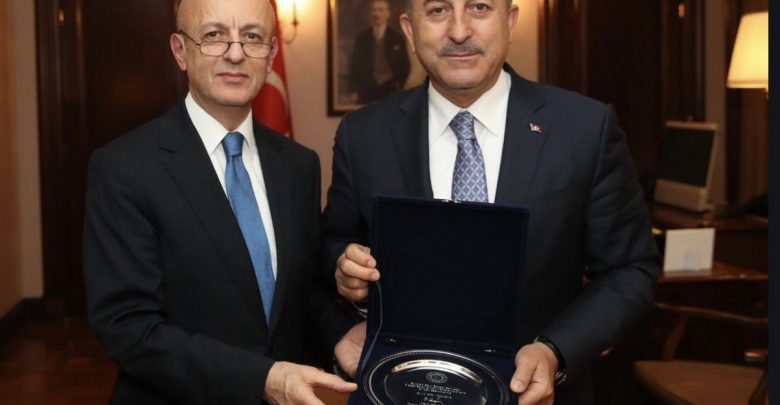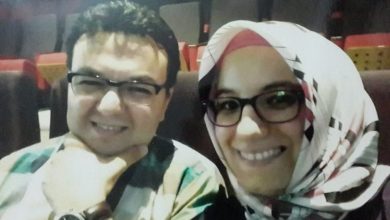Turkey’s former Kyiv Ambassador İşçan is now candidate for membership on the UN anti-torture committee
Erdoğan Şerif İşcan made embassy in Kiev on 23.12.2005-2.11.2009

In what could be seen as a highly cynical action by the Turkish government, a Turkish ambassador who prevented the publication of a Council of Europe (CoE) torture report has become a candidate for membership on the UN anti-torture committee.
Ambassador Erdoğan Şerif İşcan, who vetoed the publication of a 2016 report by the CoE’s Committee for the Prevention of Torture and Inhuman or Degrading Treatment or Punishment (CPT), is Turkey’s candidate to serve on the Committee Against Torture (CAT), Nordic Monitor has learned.
İşcan had served as the permanent representative from Turkey to the CoE in Strasbourg during which time the government came under increasing criticism for human rights violations at the council and was accused of conducting a systematic, deliberate campaign of torture and ill treatment of detainees under a two-year-long state of emergency declared after a failed coup in 2016.
İşcan has also kept silent on reports of the plight of his former colleagues who were subjected to cruel and inhumane treatment while in police custody in Ankara. Against the backdrop of his track record of preventing publication of the torture report and his silence in the face of the the government’s purge of hundreds of diplomats on dubious charges, İşcan’s nomination has attracted criticism.

CAT is a body of 10 independent experts that monitors implementation of the Convention Against Torture and Other Cruel, Inhuman or Degrading Treatment or Punishment by its state parties. Committee members are elected for a term of four years by the party states in accordance with Article 17 of the convention. In that regard, the meeting of states parties will take place in Geneva on October 3, 2019 to elect members to replace the five current members whose terms expire on December 31, 2019. New members of the committee will serve until December 31, 2021.
If elected, İşcan will become one of these members, who are supposed to be persons of high moral character with recognized competence in the field of human rights.
Ambassador İşcan served as the permanent Turkish representative to the CoE in Strasbourg from 2014 to 2018 during which time over half a million people were detained under the country’s abusive anti-terror laws, many of whom were subjected to torture and ill treatment in detention facilities and prisons. In addition to some 200 journalists, dozens of current and former MPs and academics and thousands of judges were imprisoned, and more than half a million critics of President Recep Tayyip Erdoğan detained by the police were labeled as “terrorists” by the Turkish government.

During that time Ambassador İşcan was not only a vocal supporter in Strasbourg of the anti-democratic rule of the Erdoğan regime but also vetoed CoE initiatives to explore the political atmosphere in Turkey after the 2016 coup attempt. Due to his long-standing efforts and stance in line with Erdoğan’s politics, the report of a CPT visit to Turkey in 2016 was not published at the time and still has not been published by the CoE.
A CPT expert delegation conducted a visit to Turkey from August 29 to September 6, 2016. The purpose of the visit was to examine the treatment and conditions of detention of persons who were detained in connection with the failed coup on July 15, 2016. To this end, the delegation interviewed in private several hundred persons in various prisons and police facilities.
The CPT experts visited the Ankara police headquarters (Anti-Terror Department, Law and Order Department, Organized Crime Department and temporary detention facility at Başkent Volleyball Hall), the Gölbaşi district police headquarters, and the Sincan, Silivri and Izmir F-type prisons. According to various reports by human rights organizations, the deaths of prisoners and detainees under “suspicious circumstances” are suspected to be tied to human rights abuses and torture at these centers.
Ambassador İşcan also remained silent when his former colleagues from the Foreign Ministry were reportedly tortured at the Ankara Police Department. On May 20, 2019 a Turkish court issued warrants for 249 former personnel of the Foreign Ministry on terrorism charges based on which the Ankara Police Department’s Financial Crimes Unit detained 111 former diplomats. According to a report by the Ankara Bar Association, five detainees were removed from their cells and taken to a dark room where they were tortured. The victims testified to lawyers that they were beaten, kicked and threatened with sodomy with batons if they did not confess to their alleged crimes.
Since 2016 more than 130,000 public officials have been dismissed by the government with no effective judicial or administrative investigation. Six hundred six of them were Foreign Ministry personnel who were jailed in Turkey or forced to seek asylum abroad to escape wrongful imprisonment, torture or ill treatment in prison and detention facilities.

After a purge of civil servants in large numbers and mass arrests on fabricated terrorism charges, a growing number of victims have started to apply to the European Court of Human Rights (ECtHR) to receive some sort of justice for their grievances. In a flawed deal with the CoE, the Turkish government set up a State of Emergency Inquiry Commission (OHAL Commission) in January 2017 as an interim mechanism to review dismissal decisions taken by executive decrees. However, the OHAL Commission functioned merely as a kind of formality and rubber-stamped the government’s executive decisions in most cases. In the meantime, the ECtHR’s requirement of the “exhaustion of domestic remedies” in order to accept applications has delayed the justice victims have sought as most applications to the ECtHR were rejected. İşcan played a pivotal coordination role between Turkey and the ECtHR in that process, helping to prolong victims’ suffering.
Other candidates nominated to CAT are Claude Heller Rouassant of Mexico, Ilvija Puce of Latvia, Ana Racu of Moldova, Sébastien Touze of France, Inès Hadonou of Benin, Mumba Malila of Zambia, Lorne Whitney Craner of the US, Bem Angwe of Nigeria, Franz Jhasmany Zubeita Mariscal of Bolivia, Tinatin Uplisashvili of Georgia and Abdelwahab Hani of Tunisia.
Permanent Representative of Turkey to the UN Office in Geneva Sadık Arslan, a former chief advisor to President Erdoğan and former ambassador to the Netherlands, hosted a reception to present İşcan to representatives from the countries that are party to the convention. Ambassador Arslan. who was criticized by the leader of Turkey’s main opposition party, Kemal Kılıçdaroğlu, for his alleged role in a crisis between Turkey and the Netherlands in 2017, also delivered a speech at the event.
Prior to assuming his position in Strasbourg, İşcan served as deputy undersecretary of political affairs as well as director general of multilateral political affairs at the Ministry of Foreign Affairs and coordinated the terrorism and human rights departments of the ministry. From 2009 to 2011 he was ambassador to the Republic of Korea and from 2005 to 2009 was ambassador to Ukraine.




